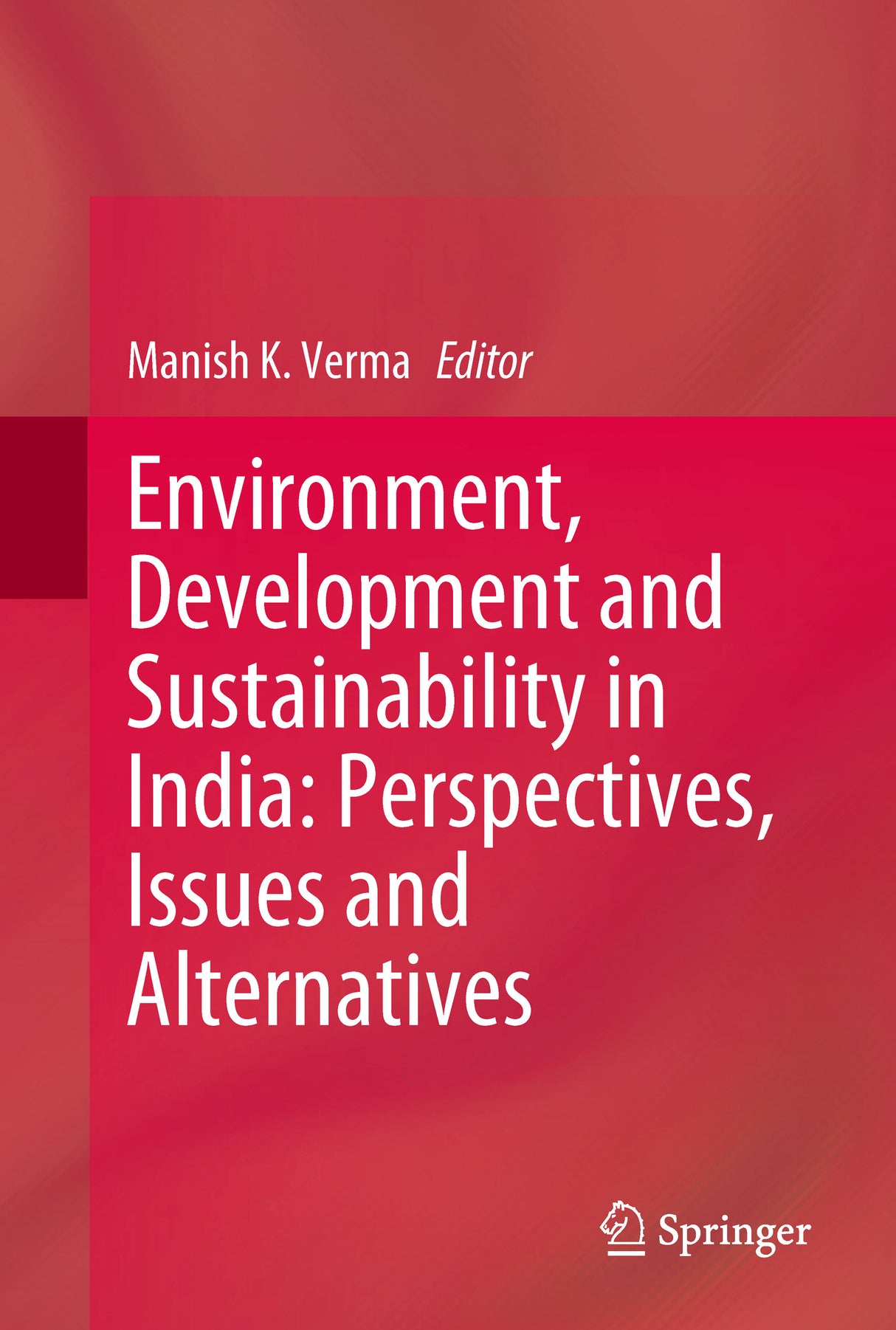ENVIRONMENT, DEVELOPMENT AND SUSTAINABILITY IN INDIA: Perspectives, Issues and Alternatives
ENVIRONMENT, DEVELOPMENT AND SUSTAINABILITY IN INDIA: Perspectives, Issues and Alternatives is backordered and will ship as soon as it is back in stock.
Couldn't load pickup availability
Genuine Products Guarantee
Genuine Products Guarantee
We guarantee 100% genuine products, and if proven otherwise, we will compensate you with 10 times the product's cost.
Delivery and Shipping
Delivery and Shipping
Products are generally ready for dispatch within 1 day and typically reach you in 3 to 5 days.
Book Details
-
Publisher: Springer
-
Editor: Manish K. Verma
-
Language: English
-
Edition: 2023
-
ISBN: 9789811932229
-
Pages: 360
-
Cover: Hardcover
About the Book
This comprehensive volume delves into the intricate and often asymmetrical relationship between environment, development, and sustainability. It explores how these three domains intersect and impact society at large, critically analyzing the consequences of current developmental models and ecological degradation. Structured into three broad sections—Perspectives, Issues, and Alternatives—the book presents a multidisciplinary approach to some of the most pressing environmental challenges of our time.
The first part examines foundational perspectives on ecology, development ethics, rural transformation, and human interaction with forest ecosystems. The second part addresses crucial environmental issues such as dam-induced displacements, agricultural distress, eco-tourism, land acquisition, and environmental migration. The final section presents innovative and sustainable alternatives through case studies on constructed wetlands, biofuels, subsistence economies, indigenous health practices, and traditional water conservation methods led by women.
Edited by Professor Manish K. Verma, a distinguished academician and researcher, this volume features contributions from a diverse set of scholars and practitioners. It is an essential resource for students, researchers, policymakers, NGOs, and professionals engaged in social sciences, environmental studies, and sustainable development.
By blending theoretical discourse with real-world case studies, this book not only critiques prevailing development paradigms but also advocates for inclusive and ecologically balanced alternatives for a sustainable future.





